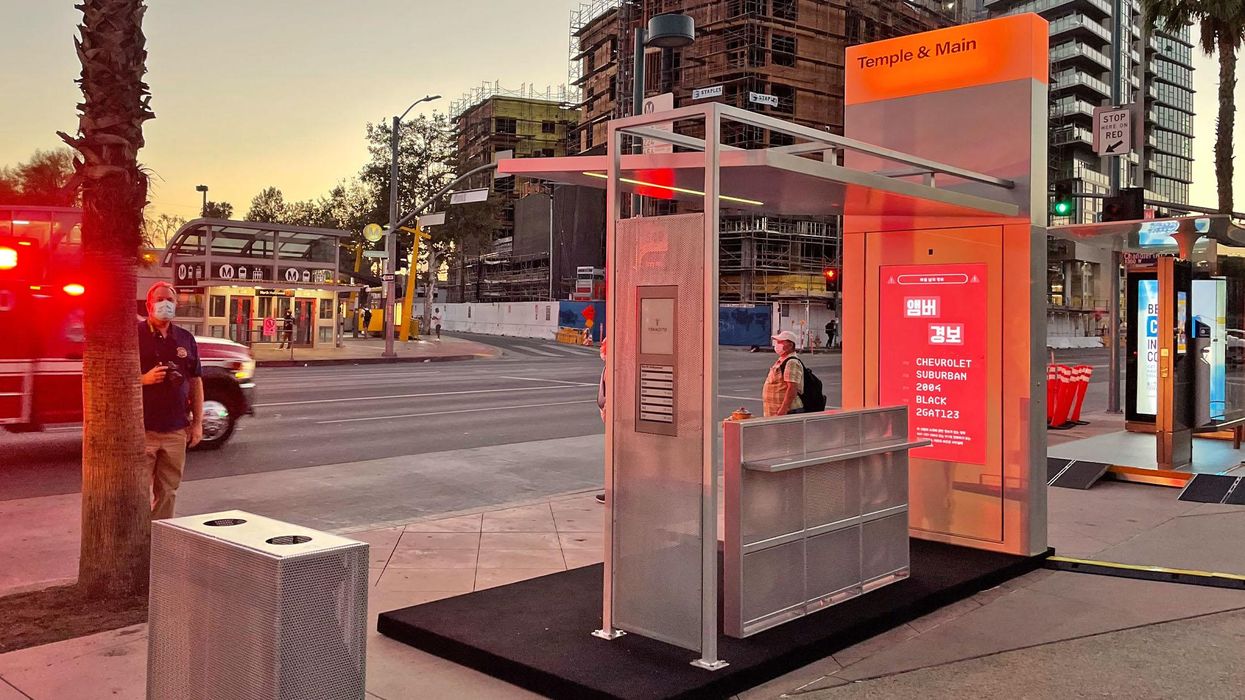‘It’s Embarrassing’: LA Tries To Address Its Flailing Bus Shelter Program with a New Contract
After over 20 years of failure, Los Angeles has a new contract to add 3,000 high-tech bus shelters to city streets by 2033. The City Council voted 12-1 to approve an agreement with curbside management and micromobility operator Tranzito-Vector.
The new shelters will have amenities like digital e-paper displays with real-time bus information, along with WIFI and phone charging capabilities. With temperatures in the San Fernando Valley hitting 110 degrees in recent weeks, StreetsLA is also looking to add cooling features to bus shelters in the hottest parts of the city. The contract will begin January 2023.
The move comes after the previous 20-year street furniture contract failed to deliver on promises for both an increase in the number of bus shelters and advertising revenue. The city and the previous contractor blamed the arduous permitting approval process for the shortfall. Eight different city agencies and individual Council members were required to sign-off on each bus shelter before it could be built—and there was no enforced deadline to respond. That, and excessive NIMBYism has led to hundreds of bus shelters remaining in limbo, advocates say. The new contract will streamline the process by only requiring two approvals and batch approving requests.
“I really do think it’s embarrassing that the city can’t provide the most basic infrastructure like bus shelters,” said Council President Nury Martinez, pledging to meet with Tranzito and StreetsLA to make sure bus shelters are placed where they are most needed in her district.
Questions remain about where the program’s funding will come from, with the city investing in capital expenditures to build bus shelters and actively seeking federal and state funding. Previously, the contractor paid all the costs of installing and maintaining shelters.
“I’m concerned about making a commitment to a mirage,” said Councilmember Monica Rodriguez, the sole “no” vote on the contract.
Councilmember Mike Bonin described taking the 33 bus from his home on the Westside to City Hall. “It was brutal. It was hitting close to 100 that day. People were suffering standing there in the heat.”
Bonin noted that although he hates digital advertising, he supports providing better amenities for bus riders who are predominantly low-income and transit-dependent. “Not only is this a public health issue, this is a civil rights issue,” he said.
So far, the city is still working on acquiring the $42 needed for the first year of the program, with a $5 million grant from Metro, $1 million from the city and $30 million pending from a public works trust fund. L.A. is projected to earn 60.5% of ad revenue over the course of the contract, with $90 million guaranteed over 10 years.


 Transit advocates urge L.A. for renovated bus stops. Courtesy of Tranzito-Vector
Transit advocates urge L.A. for renovated bus stops. Courtesy of Tranzito-Vector